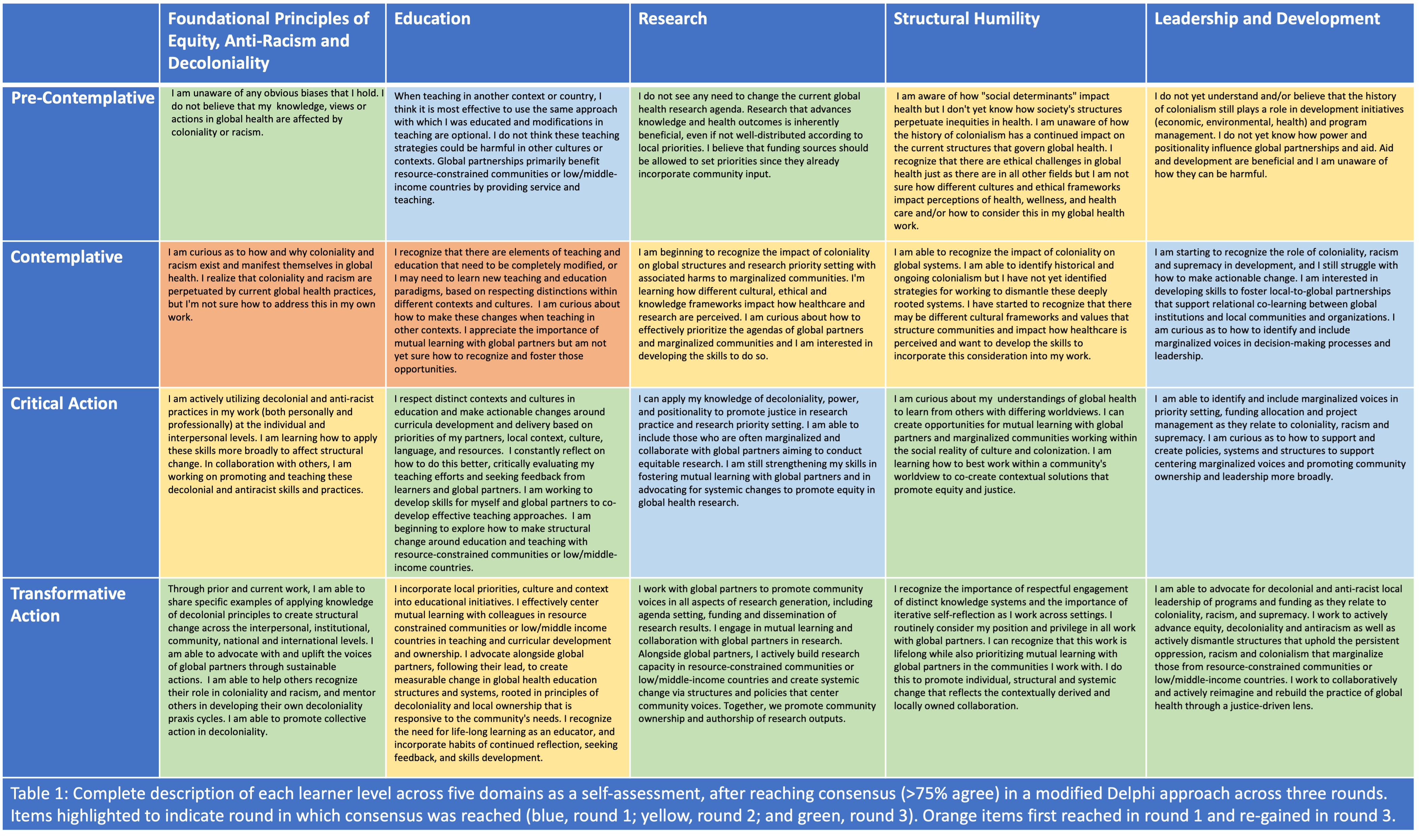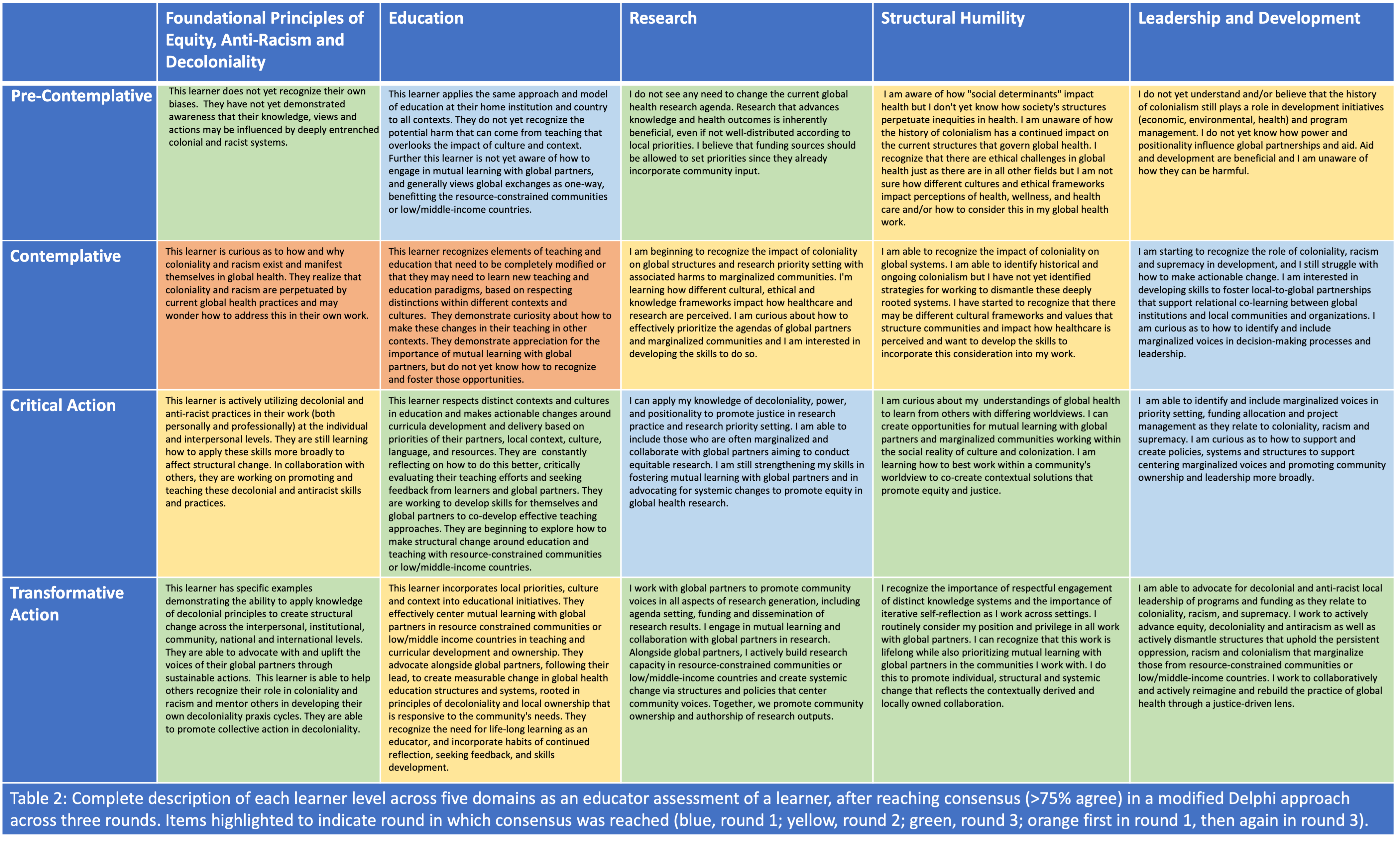Medical Education
Session: Medical Education 3
553 - Reaching Consensus on a Decoloniality Learner Assessment Tool for Clinician Trainees in Global Health Using Modified Delphi Method
Friday, May 3, 2024
5:15 PM - 7:15 PM ET
Poster Number: 553
Publication Number: 553.182
Publication Number: 553.182

Jeffrey G. Edwards, MD, MPH (he/him/his)
Resident Physician
Boston Children's Hospital/Boston Medical Center
Boston, Massachusetts, United States
Presenting Author(s)
Background: The field of global health is rooted in colonialism, and many global health partnerships perpetuate colonial power dynamics. To change this, knowledge and praxis in decoloniality must become a fundamental part of global health education and practice. We drew on existing literature to develop a tool designed to measure a learner clinician’s progression in attitudes and practice regarding health equity and decoloniality.
Objective: We aimed to establish consensus among clinicians with expertise in decoloniality regarding learner milestone definitions for a learner assessment tool for clinician trainees in global health.
Design/Methods: The initial decolonial milestones tool was developed following a model of learner progression through a nested social ecologic model. Milestones were defined across four learner levels: pre-contemplative, contemplative, critical action, and transformative action. Both a self-assessment and an educator assessment of a learner versions of the tool were created.
We conducted a modified Delphi process using an online survey to create consensus on 20 learner milestone definitions for this assessment tool. To craft a diverse Delphi panel, we invited 11 academic clinicians who have published at least one peer-reviewed publication surrounding decoloniality; six of whom were primarily based in a resource-denied setting, five of whom were primarily based in a resource-advantaged setting, and with at least one participant from sub-Saharan Africa, Central and South America, and Southeast Asia. One participant was actively in training and one participant was trained as a registered nurse. Consensus was defined as >75% of panelists accepting the definition.
Results: After three rounds, Delphi members had reached consensus on 6/20 items in round 1, 10/20 items in round 2, and 18/20 items in round 3 for both the self-assessment (Table 1) and educator assessment (Table 2) versions of the tool. Themes of changes to the tool included better reflecting the mutual learning that occurs between global partners, providing more observable behaviors for assessment, and incorporating transformative learning principles into the milestones, which predominantly utilize a behaviorist framework (figure 1).
Conclusion(s): This study provides consensus on milestone definitions for a learner assessment tool for clinician trainees in global health that allows learners and educators to engage in self-reflection and progression in decolonial attitudes and practice during an educational process. Further assessment of this newly created tool’s internal validity is being conducted as a follow-up study.

.png)

